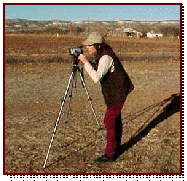
Teaching Philosophy –
Not sure how to express myself here. Like so many community college instructors, I come from my discipline background, and not from an educational one. But, as expressed in my introduction, I am a “Jack of all Trades”: anthropologist, artist, archivist, environmental steward, community involvement. Worse yet, I am addicted to all of those things.
So my philosophy adheres less of the “rules of pedagogy” as it does to “my own rules.” Let’s see if I can express them.
Open and Accessible – There are many ways this can occur… or not occur. By accessible, I mean that every student has the opportunity. This may mean accessibility to a computer, or it may mean getting help when they need it, or it may mean that we design our courses for ultimate understanding. Moreover, I think it means that WE, the instructors, are accessible. I try to be there for them, answering any and all questions, checking email frequently, willing to meet with them, and so on. It also means that my attitude is open and accessible. That I do it willingly and happily. That I work at providing a friendly demeanor from start to finish.
Relationship – In line with my ideas of demeanor, I find myself building relationships with my students. For me, an online course provides a broader opportunity for that relationship. I am closer with my online students than I ever was with F2F classes. Sometimes this is a little scary, I hear about domestic violence, illness, and other problems. Other times it is vastly rewarding, and we stay in contact for a long time. This is one reason for building the Ning site. Thus my students can share the experience for long after the class is over. Have to work harder on that one.
Enriching and Uplifting – Well, its easy with Photoshop, less so with anthropology, and was really difficult with my environmental stewardship course. Photoshop is inspiring, and almost all of my students complete the course, and do great work. Anthropology, and any academic course, especially a required one, it’s more difficult. I found that online discussion groups really worked and we learned a lot from each other. Blogs would be the same. My toughest experience was with the environmental course. The students came to it kicking and screaming. It was added to their curriculum and they were forced to take it, something deviating from their chosen coursework. But the discussions and the required tasks really opened a new area of thought for them. In the end… they loved the experience.
Fun – Most of all, it should be fun. Photoshop is fun. Ruth, Todd and Thatcher know how to make a class fun. This may be one of my highest requirements of myself for my teaching philosophy.







I like your "own rules"--they all sound great to me. Your many definitions being open and accessible are unquestionably important for student success.
ReplyDelete